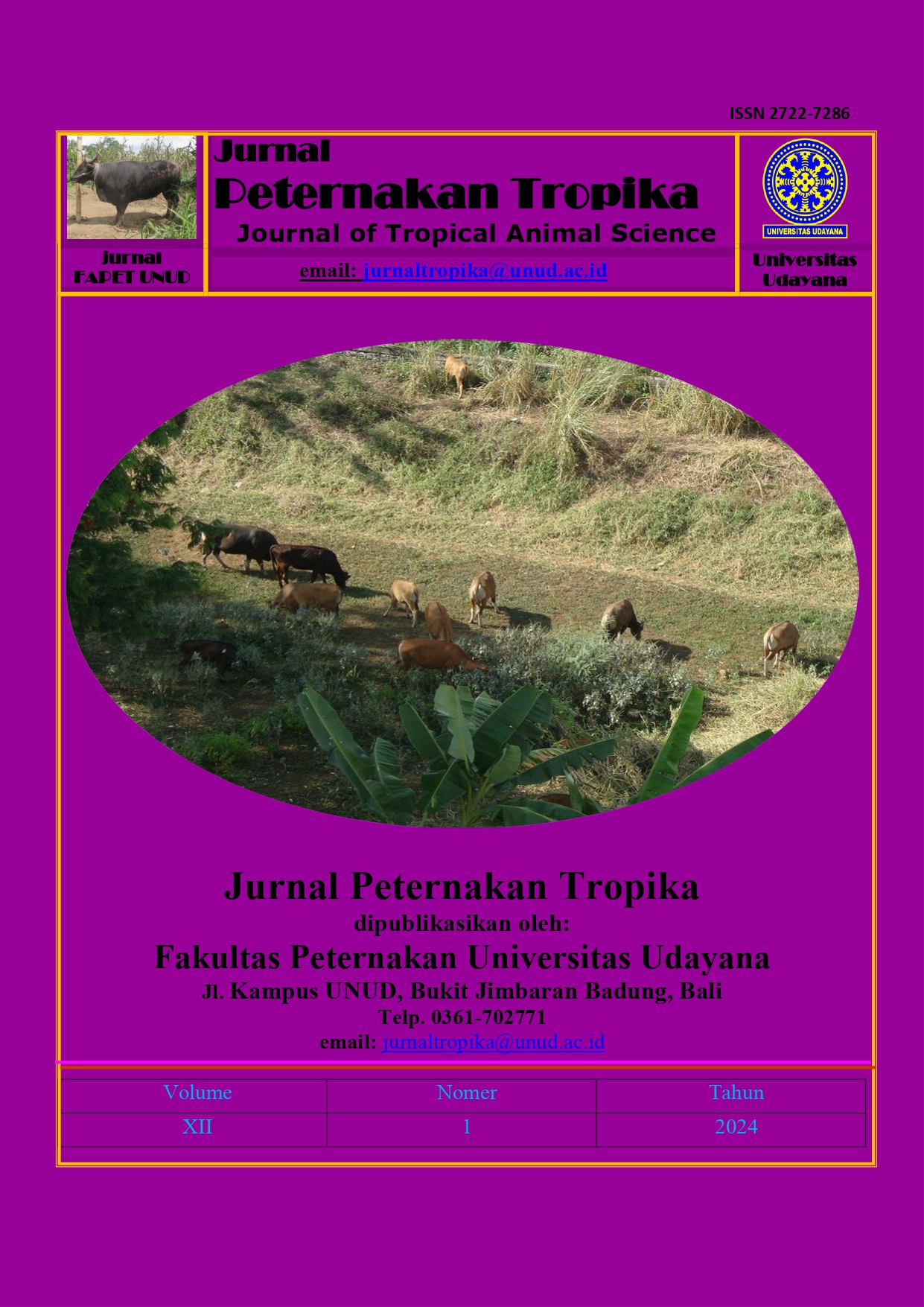THE IMPLEMENTATION LEVEL OF SEVEN PILLARS PIG FARMING IN PED VILLAGE NUSA PENIDA SUB-DISTRICT KLUNGKUNG REGENCY BALI
Abstract
This research aims to determine the implementation level of seven pillars of pig farming and the factors associated with its implementation in Ped Village, Nusa Penida Sub-District, Klungkung Regency, Bali, for two months from May to June 2023. The location selection was done through purposive sampling, and the respondents were selected using quota sampling, totaling 35 individuals. The data analysis used descriptive analysis and Spearman Rank Correlation Coefficient. The results of the study showed that the implementation level of sapta usaha in Ped Village was still categorized as low. Factors related to the implementation level of seven pillars of pig farming, such as formal education, non-formal education, number of livestock ownership, participation in livestock groups, farmer's position in the organization, knowledge, attitude, skills, communication intensity, social-cultural and economic impacts, had a significant relationship (P<0.01). Eventhough factors such as the number of family dependents and duration of farming had a significant relationship (P<0.05). Factors such as age and land ownership had no significant relationship (P>0.10) with the implementation of seven pillar pig farming in Ped Village is classifed as low, Nusa Penida Sub-District, Klungkung Regency, Bali. Conclusion: 1) The implementation level of seven pillar pig farming in Ped Village is classified as low; 2) Factors associated with the implementation level of seven pillar pig farming include formal education, non-formal education, number of family dependents, number of livestock ownership, duration of farming, participation in livestock groups, farmer's position in the organization, knowledge, attitude, skills, communication intensity, and the perceived socio-cultural and economic impacts by farmers. The farmers needed increase the implementation level of seven pillars.






